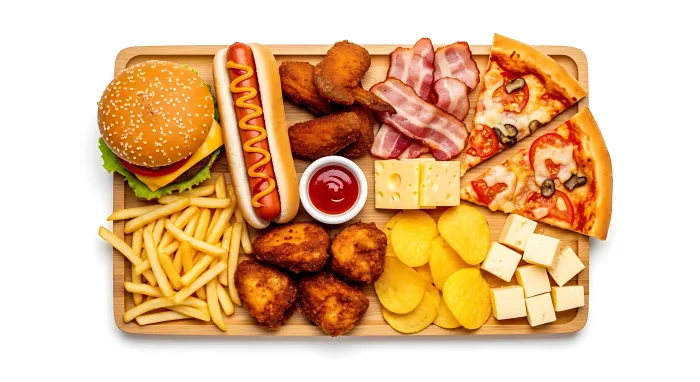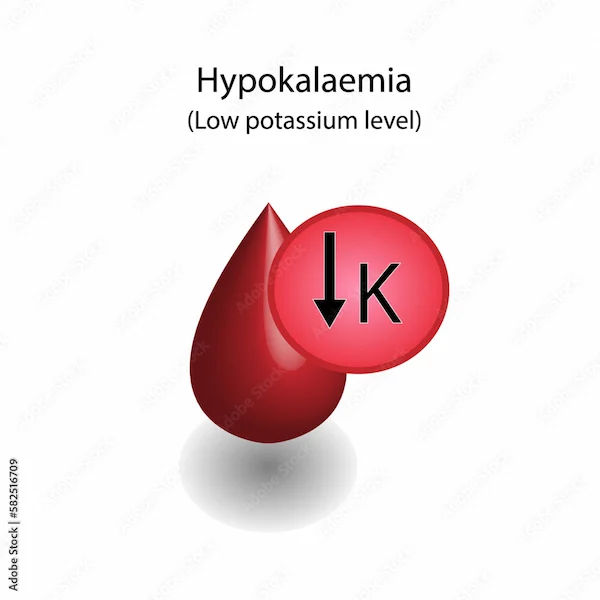Ways To Gain Weight Fast
Discover safe, effective ways to gain weight quickly and healthily. Learn about high-calorie foods, strategic eating plans, and exercises for muscle mass.

Written by Dr. Mohammed Kamran
Reviewed by Dr. Shaik Abdul Kalam MD (Physician)
Last updated on 13th Jan, 2026

Introduction
If you’ve tried to eat more but the scale won’t budge, you’re not alone. Gaining weight fast sounds simple—just “eat more”—but for many people, appetite, busy schedules, and training confusion make it frustrating. The good news: with a smart plan, you can gain weight fast without living on junk food, and most of those calories can go toward muscle, not just fat. In this guide, you’ll learn why some bodies resist change, how fast is safe, and how to craft a calorie surplus that actually fits your life. We’ll cover protein targets, high-calorie foods to gain weight, energy-dense smoothies, and a beginner-friendly strength plan that turns calories into muscle. You’ll also get practical appetite boosters, budget-friendly swaps, and guidance on when to seek medical support if your weight won’t move. By the end, you’ll know exactly how to set a weekly goal, build meals, train effectively, and adjust if progress stalls—so you can gain weight fast and feel stronger every week.
Why Some People Can’t Gain Weight Fast
Even when two people eat the same meal, appetite, energy needs, and how the body uses fuel can differ. Some individuals have smaller stomach capacity or stronger satiety signals, making it tough to consistently hit a calorie surplus for weight gain. Others are naturally more fidgety (high non-exercise activity thermogenesis, or NEAT), burning extra calories through movement without noticing. If you’re an “ectomorph” or someone who claims a “fast metabolism,” this usually means you unconsciously move more and fill up quickly—both work against your goal to gain weight fast.
Hidden medical causes can also play a role. Hyperthyroidism, uncontrolled diabetes, celiac disease, inflammatory bowel disease, chronic infections, depression, anxiety, or medications that suppress appetite can all make weight gain difficult. If you’ve had recent unintentional weight loss, persistent diarrhea, night sweats, fever, hair loss, palpitations, or significant fatigue, get evaluated before pushing calories higher. Mayo Clinic and NHS guidance emphasize diagnosing and addressing underlying issues alongside healthy weight-gain strategies.
Practical steps:
• Keep a 3-day food log to see what you actually eat. Many under-eat by 300–800 kcal compared to what they think.
• Note symptoms like GI distress or heat intolerance; they can hint at thyroid or gut issues.
• Consider basic labs if your weight won’t budge or you have red flags: thyroid panel (TSH), celiac screening, HbA1c, CBC, vitamin D and B12. Apollo24|7 offers a convenient home collection for tests like TSH, vitamin D, and HbA1c.
Unique insight:
Your environment matters. Stock calorie-dense snacks at eye level, prep ready-to-drink shakes, and set meal reminders—reducing “friction” may add 300–500 kcal/day without feeling forced.Consult a Top General Physician
How Fast Is Safe? Setting Goals and Timelines
“Fast” weight gain should still be safe and sustainable. A practical target for most is 0.25–0.5 kg (0.5–1.0 lb) per week. If you’re very underweight or a true beginner in resistance training, 0.5 -- 0.75 kg (1.0 -- 1.5 lb) per week may be achievable early on, though most of that gain may be fat. The leaner the starting point, the more cautious you should be with aggressive surpluses to avoid excessive fat gain.
Muscle vs. fat expectations:
• Beginners can add 1–2 kg (2–4 lb) of lean mass per month with progressive strength training, adequate protein, and sleep, especially in the first 3–6 months.
• Intermediates will progress slower; aim toward the lower end of weekly targets to keep gains lean.
Female-specific considerations:
Women often experience higher satiety at meals and may benefit more from liquid calories and calorie-dense add-ons (oils, nut butters) to hit targets. Hormonal fluctuations can affect appetite and water weight, so judge progress using 4-week averages rather than single weigh-ins. For anyone asking “how to gain weight fast female,” the core principles are the same—slightly smaller meal volumes, more frequent snacks, and strength training to drive gains toward muscle.
Unique insight:
Set a “minimum effective dose” timeline—8 weeks of consistent surplus, lifting, and sleep. Evaluate with photos and waist measurement as much as the scale. If your waist is expanding faster than desired, reduce the surplus by ~150–200 kcal; if your weight is flat for two weeks, increase by ~150–200 kcal.
Eat for a Surplus: Calories, Macros, and Meal Strategy
• Find maintenance:
Multiply bodyweight (in lb) by 14–16 or (in kg) by 30–35 to estimate maintenance calories. Example: 70 kg x 33 ≈ 2,310 kcal. Add your surplus: +300–500 kcal for steady gains; +700–1,000 kcal if underweight or if you want to gain weight fast, accepting a bit more fat gain.
Macros that work:
• Protein: 1.6–2.2 g/kg/day supports muscle growth with resistance training [2]. For 70 kg, that’s ~110–155 g. Distribute across 3–5 meals for better muscle protein synthesis.
• Carbohydrates: 3–6 g/kg/day for training energy; higher during intense lifting cycles. Carbs are your friend for appetite and performance.
• Fats: Fill the remainder—at least 0.6–0.8 g/kg/day to support hormones and energy density.
Energy-density hacks to hit a calorie surplus for weight gain:
• Add 1–2 tbsp olive oil to bowls or sandwiches (+120–240 kcal).
• Stir nut butter into oats, yogurt, or smoothies (+90–190 kcal).
• Top meals with cheese, avocado, seeds, and dried fruit.
• Swap water for milk in oatmeal, soups, or shakes.
Liquid calories and healthy mass gainer shakes: Blending calories is an easy way to gain weight with a fast metabolism. Try a 700–900 kcal smoothie: 2 cups whole milk, 1 scoop whey or plant protein, 2 tbsp peanut butter, 1 banana, 1/2 cup oats, honey, and a pinch of salt. This fits “high-calorie foods to gain weight” without relying on junk food.
Meal rhythm:
Aim for 5–7 eating opportunities per day: 3 meals + 2–4 snacks or shakes. If you feel full quickly, lead with protein-dense bites, then carbs, and finish with fats and extras. For anyone seeking a “weight gain meal plan for beginners,” fill each meal with a protein anchor (e.g., eggs, chicken, tofu), a carb base (rice, potatoes, pasta), and a fat topper (olive oil, avocado, nuts).
Unique insight:
Think “calories per minute.” Choose foods that deliver more energy per bite and per minute of eating—rice over salad, dried fruit over fresh, trail mix over plain nuts—to reach your target with less fullness.
Train to Turn Calories Into Muscle
Strength training is the steering wheel that directs your calorie surplus toward muscle. A simple, effective plan is 3 full-body sessions per week (e.g., Mon/Wed/Fri), using multi-joint lifts you can progressively load:
• Day A: Squat, Bench Press, Row, Hip Hinge (RDL), Shoulder Press, Chin-up or Lat Pulldown
• Day B: Deadlift, Incline Press or Push-up, Split Squat or Lunge, Seated Row, Dips or Triceps Pressdown, Face Pulls
Reps and sets:
Start with 3–4 sets of 6–12 reps per exercise. Increase either the weight (2.5–5 kg for lower body; 1–2.5 kg for upper) or reps each week—this “progressive overload” is the number-one driver of muscle gain. Most people will benefit from 8–12 hard sets per major muscle group weekly, spread across sessions.
Cardio:
Keep it to 1–2 light sessions (20–30 minutes) for heart health and recovery. Excessive cardio makes it harder to gain weight fast—save the long runs for later phases.
Protein timing and recovery:
Aim for 20–40 g protein within 2 hours post-workout to support muscle protein synthesis [2]. If appetite is low after training, use a shake—another chance to add 300–600 kcal with carbs and fats.
Unique insight:
Use “micro-sessions” on busy days. A 15-minute mini-workout (push-ups, rows, squats, hip hinges) still signals muscles to grow and helps appetite rebound, keeping your eating plan on track.
Lifestyle, Supplements, and Medical Checks
Sleep: Aim for 7–9 hours. Consistent sleep supports anabolic hormones and training recovery; sleeping well makes appetite and workouts easier the next day. Chronic sleep restriction blunts performance and makes hitting a surplus feel harder.
Stress management: High stress can suppress appetite for many people. Simple additions—10-minute walks, breathing exercises, or 5 minutes of journaling—can smooth eating consistency. Consider scheduling meals and shakes like meetings to remove decision fatigue.
Supplements that actually help:
• Creatine monohydrate: The most researched ergogenic aid. Take 3–5 g daily; it improves strength and lean mass gains with training and is safe for healthy adults [3]. This is among the few supplements that truly support strength training for weight gain.
• Protein powders: Whey, casein, or soy/pea blends help you hit daily protein targets economically and conveniently. Mass gainers are just protein plus carbs—often a pricey version of milk + oats + peanut butter + fruit.
When to see a doctor:
• If you are underweight with rapid or unexplained weight loss, GI symptoms (persistent diarrhea, malabsorption), heat intolerance/palpitations, excessive thirst/urination, or fatigue, seek medical care. Mayo Clinic and NHS emphasize evaluating causes while pursuing healthy weight gain .
• Useful labs: TSH (thyroid), HbA1c (diabetes screen), celiac panel, CBC (anemia), vitamin D and B12. If symptoms persist beyond two weeks, consult a doctor online with Apollo24|7 for further evaluation. Apollo24|7 also offers a convenient home collection for tests like vitamin D, TSH, or HbA1c so you can keep training and eating on schedule.
Unique insight:
Treat appetite like a skill. Exposure to larger portions, reliable eating times, and gradually increasing serving sizes “train” your hunger cues over 2–4 weeks.
Monitor, Adjust, and Avoid Common Mistakes
Track without obsession:
• Weigh 3–4 mornings per week after bathroom, before food; use a weekly average.
• Take front/side photos and a waist measurement every 2 weeks.
• Good trend: +0.25–0.5 kg/week with minimal waist change.
When the scale stalls:
• First, confirm consistency: Are you hitting your protein and calorie targets at least 5 days/week?
• Then add 100–200 kcal/day (a tablespoon of olive oil or nut butter, an extra glass of milk, or a banana + honey).
• If training has stalled, add a set or nudge weights up 2–5%.
Common mistakes:
• Relying on junk food: It’s easy to “overshoot” with ultra-processed foods that cause GI distress and low-quality recovery. Instead, use whole-food energy boosters (oils, nuts, avocado, dried fruit) to gain weight fast without junk food.
• Skipping training: Without the muscle stimulus, the surplus goes mostly to fat.
• Fear of fats: Healthy fats are the easiest way to raise calories without huge meal volume.
Special cases:
• Older adults:
Prioritize protein at each meal (25–35 g), vitamin D status, and simple strength moves to combat sarcopenia. Consider creatine for strength support [3].
• Teens:
Supervise nutrition; avoid extreme surpluses. Emphasize whole foods, regular meals, and technique-focused training.
• Vegans/vegetarians:
Use soy/pea protein blends, tofu/tempeh, lentils, whole grains, nuts, seeds, and fortified plant milks. Emphasize B12 and iron status if energy is low.
Unique insight: Build “default days.” Create one or two repeatable menus that hit your calorie target with minimal cooking. Repeat on busy weeks, then rotate new recipes for variety when time allows.
Conclusion
Gaining weight fast doesn’t require force-feeding or junk food—it requires a clear, repeatable plan. Set a realistic weekly target, build a modest calorie surplus, and anchor every day with enough protein, carbs for training energy, and fats for effortless calorie density. Direct those calories with three purposeful strength sessions each week, and protect your progress with 7–9 hours of sleep and simple stress-management habits. Use liquid calories and energy-dense add-ons to hit your numbers, and treat appetite like a skill that grows with consistency. Most importantly, monitor the trend. If the scale hasn’t moved in two weeks, nudge calories up by 100–200 and keep your training progressive. If your waistline grows faster than your weight, scale back slightly or add a bit more walking. And if your weight won’t budge or you have symptoms like persistent GI issues, heat intolerance, or fatigue, get checked—addressing underlying issues will make the process smoother. If your condition does not improve after trying these methods, book a physical visit to a doctor with Apollo24|7 to rule out medical causes and personalize your plan. With the right structure and small weekly adjustments, you’ll gain weight fast, feel stronger, and see the results you’ve wanted—without guesswork.Consult a Top General Physician
Consult a Top General Physician

Dr. Rajib Ghose
General Physician/ Internal Medicine Specialist
25 Years • MBBS
East Midnapore
VIVEKANANDA SEBA SADAN, East Midnapore

Dr Sahana Gangatkar
General Physician/ Internal Medicine Specialist
8 Years • MBBS, MD
Bengaluru
Apollo Clinic, JP nagar, Bengaluru
(25+ Patients)

Dr Akash Bhojgaria
General Physician/ Internal Medicine Specialist
10 Years • MBBS
New Town
Prime Diagnostic and Polyclinic, New Town

Dr. Vivek D
General Physician
4 Years • MBBS
Bengaluru
PRESTIGE SHANTHINIKETAN - SOCIETY CLINIC, Bengaluru

Dr Tushar Karmakar
General Physician/ Internal Medicine Specialist
7 Years • MBBS, MD General Medicine
Kolkata
Kare pharmacy, Kolkata
Consult a Top General Physician

Dr. Rajib Ghose
General Physician/ Internal Medicine Specialist
25 Years • MBBS
East Midnapore
VIVEKANANDA SEBA SADAN, East Midnapore

Dr Sahana Gangatkar
General Physician/ Internal Medicine Specialist
8 Years • MBBS, MD
Bengaluru
Apollo Clinic, JP nagar, Bengaluru
(25+ Patients)

Dr Akash Bhojgaria
General Physician/ Internal Medicine Specialist
10 Years • MBBS
New Town
Prime Diagnostic and Polyclinic, New Town

Dr. Vivek D
General Physician
4 Years • MBBS
Bengaluru
PRESTIGE SHANTHINIKETAN - SOCIETY CLINIC, Bengaluru

Dr Tushar Karmakar
General Physician/ Internal Medicine Specialist
7 Years • MBBS, MD General Medicine
Kolkata
Kare pharmacy, Kolkata
More articles from General Medical Consultation
Frequently Asked Questions
1) What is a safe weight gain per week?
For most, 0.25–0.5 kg (0.5–1.0 lb) per week is safe. Beginners can sometimes gain faster initially, but more of that may be fat. Aim for consistency and evaluate trends monthly.
2) How much protein should I eat to gain weight fast?
Target 1.6–2.2 g/kg/day, spread over 3–5 meals. This supports muscle growth with resistance training and is backed by sports nutrition research.
3) What are the best high-calorie foods to gain weight?
Whole milk, olive oil, nut butters, avocado, cheese, oats, rice, potatoes, dried fruit, trail mix, dark chocolate. These deliver lots of energy per bite and make a calorie surplus easier.
4) Do I need supplements like creatine or mass gainers?
You don’t need them, but creatine monohydrate (3–5 g/day) reliably boosts strength and lean mass with training. Protein powders help you hit daily protein targets. Mass gainers are convenient but can be replicated with DIY shakes.
5) When should I see a doctor about being underweight?
If you have sudden weight loss, chronic diarrhea, fatigue, palpitations, or loss of appetite, get evaluated. Consider labs like TSH, HbA1c, celiac panel, vitamin D and B12. If symptoms persist beyond two weeks, consult a doctor online with Apollo24|7 for further evaluation. Apollo24|7 also offers home collection for common tests.




.webp)